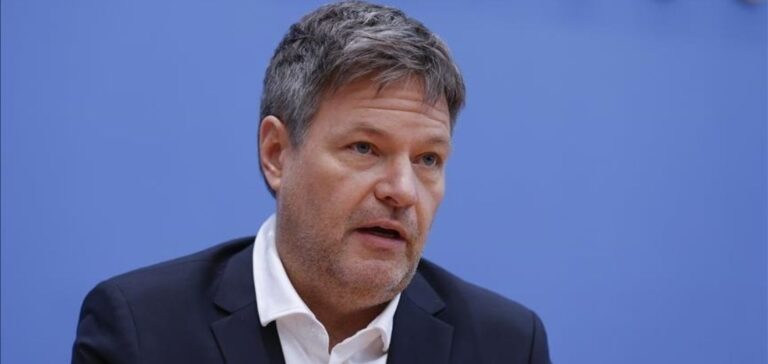The German Minister of the Economy deplored on Wednesday the “astronomical” prices demanded by countries “friendly” to Germany, led by the United States, to supply gas to compensate for the end of the
Russian deliveries.
“Some countries, even friendly ones, sometimes get astronomical prices,” Robert Habeck said in an interview with the regional daily “Neue Osnabrücker Zeitung” on Wednesday.
“This poses a problem,” said the minister, who called on the European Commission to “talk” with these countries.
After the invasion of Ukraine, Russia first considerably reduced its gas deliveries to Germany before stopping them at the beginning of September, whereas Russian flows represented 55% of the country’s gas imports before the conflict.
To ensure its energy security and save its gas-intensive industry, Berlin has had to diversify its suppliers and has considerably increased its purchases of liquefied natural gas (LNG), which is much more expensive to import.
The country – like the whole continent – has turned to the United States, whose share of European LNG imports has risen from 28% to 45% between 2021 and 2022.
So Habeck specifically targeted U.S. suppliers. “The United States turned to us when oil prices exploded (…) I think that such solidarity would also be useful to cushion gas prices,” said the minister.
Last spring, as oil prices soared, the United States, followed by its allies in the International Energy Agency (IEA), dipped into its national strategic reserves of barrels to relieve pressure on the markets.
Berlin is also calling on the European Union to coordinate its gas purchases to bring prices down.
The EU must “pool its market power and orchestrate intelligent and synchronized purchasing behavior (…) so that different EU countries do not outbid each other,” he added.
To cap gas prices for its citizens and businesses, the German government already announced last week a massive 200 billion euro aid package.
This initiative has been criticized by its European neighbors, led by France and Italy, accusing Berlin of going it alone on the subject.






















